Ours is a holistic approach that does not hinder the physiological processes of the body. It's an approach that encourages the restoration of balance, by combatting the causes of symptoms as efficiently as possible and ensuring fast relief.
Symptoms and relief
SELECT YOUR NEED

Female sexual sphere
INTIMATE HEALTH: A MATTER OF IMMUNE BALANCE
Our body comes into contact with many different substances every day, both exogenous and endogenous in nature. THE BODY'S ABILITY TO STAY HEALTHY DEPENDS FOR THE MOST PART ON THE EFFECTIVENESS OF OUR IMMUNE SYSTEM and the defense mechanisms found in the tissues most in contact with the outside world:
- THE SKIN BARRIER, which serves as the first line of defense
- THE GASTROINTESTINAL TRACT which faces the highest antigenic load, more precisely called GALT (Gut-Associated Lymphoid Tissue)
- THE VAGINAL MICROBIOTA: A KEY LINE OF DEFENSE

THE VAGINAL MICROBIOTA: A KEY LINE OF DEFENSE
In order for our body to be able to defend itself, the VAGINAL and intestinal MICROBIOTA must also be in EUBIOSIS.
When in a state of equilibrium, the vaginal microbiota is composed mainly of LACTOBACILLI, also called "Döderlein's Lactobacilli." Lactobacilli are primarily responsible for vaginal acidity, providing an acidic environment with a pH between 3.5 and 4.5. The pH of the vulvar area is slightly higher, with a value above 5.
Also present within the vaginal bacterial flora are BIFIDOBACTERIA which maintain vaginal homeostasis together with Lactobacilli, and OPPORTUNISTIC MICROORGANISMS such as Candida albicans, Gardnerella vaginalis, etc.
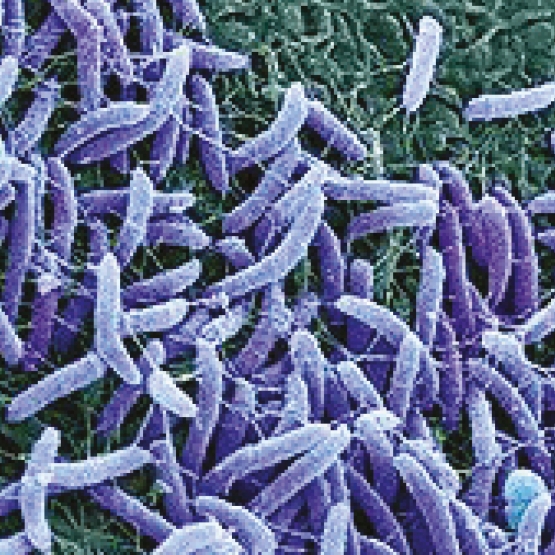
THE DYSBIOSIS OF THE GENITAL SYSTEM


THE FACTORS RESPONSIBLE FOR SUCH AN IMBALANCE ARE MAINLY:
- inappropriate lifestyle
- poor nutrition
- topical application of antibiotic-based medications
- aggressive vaginal irrigation
- spermicides
- use of intrauterine contraceptives
- unprotected sexual intercourse (this is the main vehicle for infection; in addition, semen raises the vaginal pH))
Prebiotics
These indigestible substances selectively stimulate the growth of beneficial bacteria in the intestinal and vaginal microbiota, particularly Lactobacilli and Bifidobacteria.
Probiotics
These are live and active microorganisms that can reach the intestine, multiply and have a rebalancing action on the intestinal microflora by direct colonization.
Postbiotics
They are a broad class of molecules resulting from the metabolic activity of a probiotic or any molecule released by one which is able to support eubiosis and confer numerous positive effects on the host, both locally and systemically. Postbiotics include: short-chain fatty acids, proteins, enzymes, vitamins, minerals, etc.
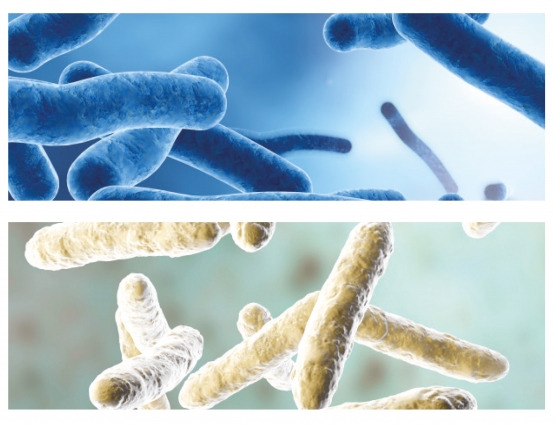
Grapefruit seed extract (GSE)
GSE is Grapefruit Seed Extract. It possesses proven broad-spectrum selective antimicrobial properties and is active against C. albicans, which makes it effective in the treatment of vaginitis, respecting the beneficial vaginal flora and exerting a protective effect on the gastrointestinal mucosa.
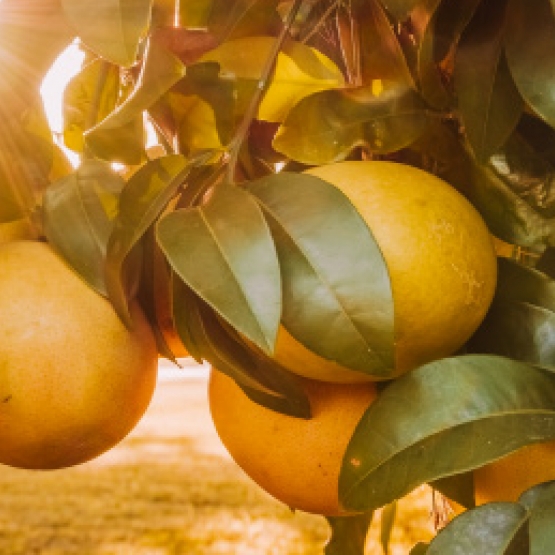
Cat's claw
Many studies have highlighted the immunomodulatory, anti-inflammatory and antioxidant properties of Cat's Claw extract. This plant has also been shown to have effective antimicrobial action against C. albicans.
Rosmary
Rosemary extract has been found to be effective in controlling the growth of various types of Candida, including C. albicans. The extract from this perennial plant has also demonstrated antibacterial and antiviral properties.
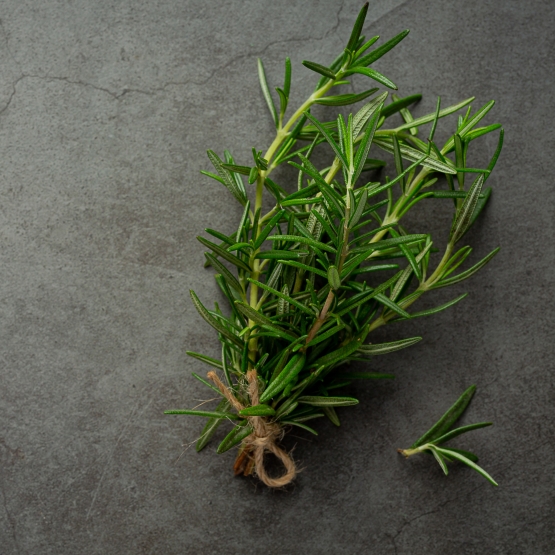
Skullcap
The presence of flavonoids gives the plant an antimicrobial effect, including against C. albicans. In addition, the polysaccharides are able to regulate the immune response. It also promotes digestion and liver function, a process which is often impaired in vulvovaginal infectious diseases.
Cumin
Thanks to the presence of terpenes, Cumin essential oil has shown effective antiviral, antifungal and antibacterial activity against Gram+ and Gram- bacteria. Cumin has been shown to be active against Candida albicans..
Oregano
Used in traditional medicine to treat urinary tract disorders, Oregano essential oil has been shown to possess antimicrobial properties and to have a broad-spectrum antifungal action against C. albicans. It has also shown in vitro antibacterial action against E. coli.
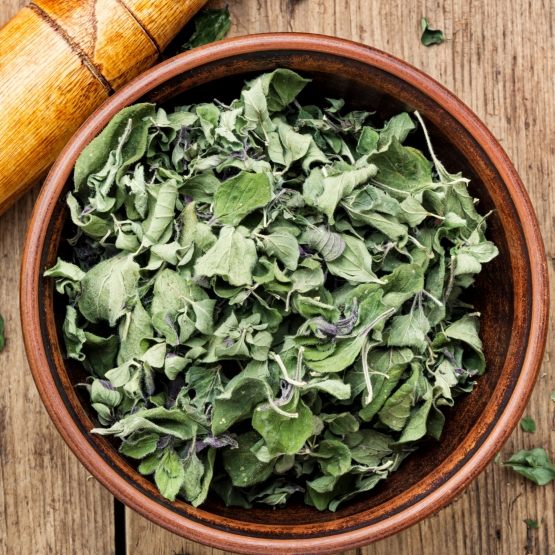
Lavander essential oil
Many studies have shown Lavender's ability to inhibit the growth of various microorganisms, especially bacteria (Gram+ and Gram-) and fungi. The anti-inflammatory effect of Lavender essential oil has also been demonstrated.
Juniper essential oil
In vitro studies have shown strong antimicrobial properties, both against bacteria and fungi. In synergy with other essential oils, particularly that of Lavender, Juniper essential oil seems to have a particular affinity for controlling the growth of Candida.
Myrtle essential oil
Myrtle essential oil has an anti-inflammatory function and shows potent antimicrobial and antifungal activity in gynecological settings. A clinical study has shown that it also leads to a marked reduction in recurrences of bacterial infections.
ALOE VERA
Its main component, acemannan, has been shown to modulate the immune response and accelerate wound healing. Aloe vera has anti-inflammatory, antioxidant and healing properties. Its moisturizing effect is due to being rich in water and polysaccharides.
TEA TREE OIL
The oil obtained from the leaves of Maleleuca alternifolia has a phytocomplex rich in terpenes, which are substances with marked antibacterial and antifungal properties. In particular, it has been shown to have activity against various Candida species.
PIANTAGGINE
Plantain extract has been shown to have wound healing activity, supported by the antioxidant elements in the plant. Its anti-inflammatory and antipruriginous action has also been demonstrated.
Horse chestnut
Horse Chestnut seed extract has shown anti-inflammatory, antioxidant and antiviral properties. In addition, due to the presence of escin, Horse Chestnut has excellent anti-edema action, which is useful in cases of swelling of the intimate mucous membranes.
Chamomile
Chamomile has been used for centuries as an anti-inflammatory, antioxidant and astringent. In clinical experience, it has been shown that the use of Chamomile-based vaginal douches can improve symptoms associated with microbial and fungal vaginitis.
LIFESTYLE – NUTRITION FOR FEMALE GENITAL DISORDERS
When infections are present in the intimate areas (cystitis, vaginal candida, fungal infections etc.), it is necessary to combine therapy with a proper dietary approach that includes first of all a marked reduction in sugars and refined carbohydrates (sweets, creams, candies, refined cereals and derivatives such as white bread, white pasta, white rice, sugary drinks, white sugar, etc.).
Why?
Because excess consumption of these foods weakens the immune system and impairs the elimination of the infection.
In the specific case of candidiasis, during the acute phase, it is strongly recommended to also limit some of the foods that are often mentioned as healthy, because refined carbohydrates (sugars) promote the replication of candida. Here are some of them:
- whole grain cereal
- oily nuts (walnuts, hazelnuts, etc.)
- fruit juices or extracts
- very ripe fruit
After the symptoms have regressed, it is important to reintroduce these foods gradually to ensure the intake of beneficial elements, including fiber. The latter is the part of food that the digestive system cannot digest but which represents the preferred nourishment of the intestinal bacterial flora and helps it protect us from microbial "attacks," keeping the immune system healthy and in excellent shape.
THE ADVANTAGES OF
- GARLIC. It may not be the best for your breath, but it is a superfood that has been valued in folk culture since ancient times for its antibacterial and antifungal properties, which make it "anti-Candida" as well. Those who have problems digesting it can choose black garlic, a valuable food originating in Korea which is increasingly spreading to Europe. Thanks to the fermentation process, it has a very delicate smell and a much sweeter taste than traditional garlic.
- FERMENTED FOODS. Sauerkraut, miso, kefir, fermented garlic, etc. can be of great help in the treatment of intimate conditions: they promote the restoration of the beneficial intestinal bacterial flora and likewise promote the re-balancing of the vaginal bacterial flora. In cases of candidiasis, many specialists advise against consuming fermented foods and drinks, due to the presence of yeasts. But these foods also contain probiotics and other valuable micronutrients, so they can become valuable helpers if consumed thoughtfully as part of a balanced diet.
- LEGUMES. The macrobiotic culinary approach recommends eating azuki beans and drinking their cooking water to support the health of the bladder and kidneys.
- EGGS. They are a source of vitamin D, which, in addition to being essential for bone health, has a role in the well-being of the intimate areas. Vitamin D deficiency exposes you to the risk of infections in the intimate areas.
- CRANBERRY JUICE. Incorporated into a balanced and varied diet, it is believed to be especially helpful against cystitis.
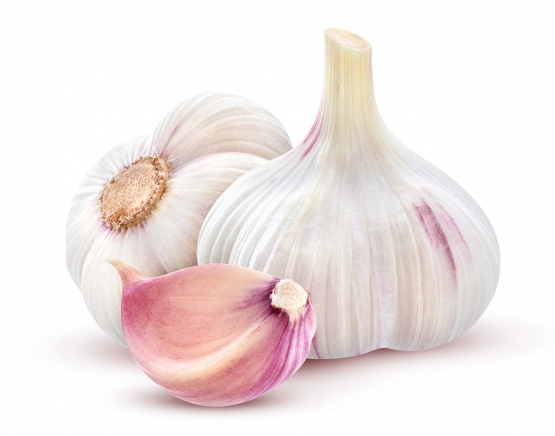
- choosing foods of organic and/or 0-km origin
- in accordance with the above advice, following a varied diet, favoring the consumption of fruits and vegetables, preferably in season, easily digestible proteins (small fresh fish, white meat, eggs), legumes, pumpkin seeds, sunflower, flax, chia, etc., walnuts, almonds, hazelnuts, etc.
- consuming cereals, preferably whole grain but not only, because in some cases fiber prevents the absorption of minerals and other nutrients, semi-wholegrain cereals and pseudocereals (quinoa, buckwheat, amaranth)
- preferring foods that are sources of omega-3 fatty acids, such as flax oil, hemp oil, oily fish (mackerel, sardines, sardines etc.), chia seeds, flax seeds, etc.
- staying adequately hydrated. Water requirements vary from individual to individual and change according to different lifestyles, type of activity and diet. An adult should generally drink 2 liters of water per day to maintain good health. Water is an essential element for the body because it regulates various biological functions. Therefore, it is important to maintain proper hydration, especially during the summer season, during sports activities and in all situations in which a lot of fluids are lost.
- avoiding abuse of gluten-containing foods, packaged foods and fried foods
- llimiting sugar, sugary drinks, refined grains (white bread, white pasta, white rice, etc.)
- avoiding hydrogenated fats, limiting red meat, milk and its derivatives, and salt. When consuming them, prefer those of high quality
The notions and advice offered herein are for educational purposes only and cannot under any circumstances replace medical advice. For a complete diet, it is necessary to consult a nutritionist, who, after appropriate clinical and instrumental examination, will be able to identify the needs of the person concerned and put together a personalized diet plan.